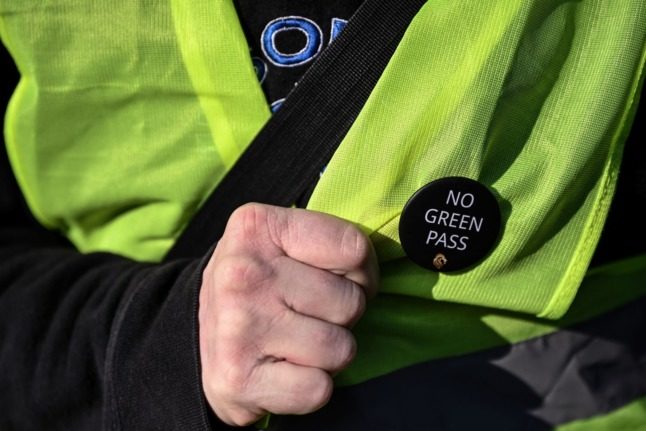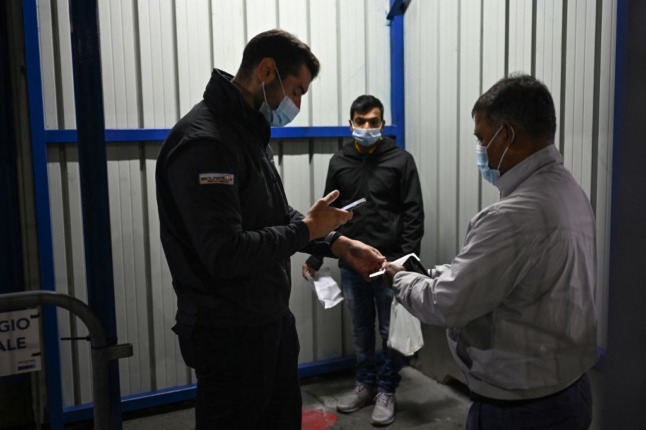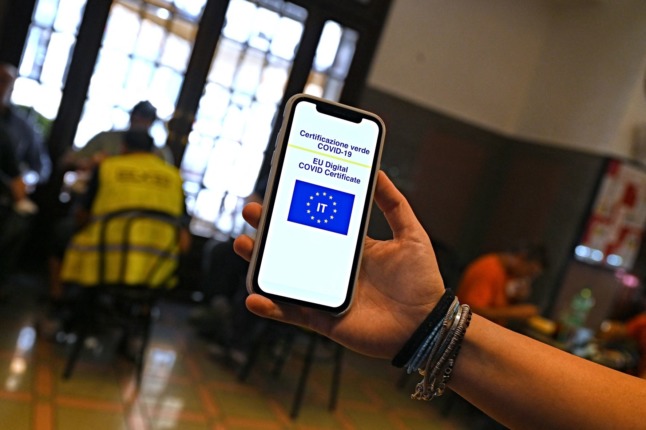Italy’s so-called ‘green passes’ have been compulsory for access to the workplace since October 15th, under some of the strictest health rules in Europe.
Figures provided to AFP by the national welfare agency INPS show that on October 15th more than 94,100 people called in sick – 28 percent more than in the previous week.
READ ALSO: How long will Italy keep the Covid green pass requirement in place?
The following Monday, around 192,000 people were off work, compared to some 165,000 seven days earlier.
Calling in sick is one way for workers who do not want to comply with the new requirements to avoid the punishment of being suspended on no pay.
Green passes are available to everyone who is vaccinated or recently recovered from Covid-19, but can also be obtained by getting a negative test, at the person’s own expense.
Government figures show a spike in the number of green passes issued following a negative test result, with almost 915,000 on Monday, some 600,000 on Tuesday and around 800,000 on Wednesday.
During October 11-13, the daily figures ranged between 292,000 and 369,500.
Around nine in ten green passes issued last week were based on a negative test result, rather than vaccination – though there was also a slight uptick in the number of first doses administered.
READ ALSO: How Italy is enforcing the new workplace green pass rules
Thousands of dock workers meanwhile went on strike on Friday as they protested the measure, and smaller pockets of resistance were also reported in other cities.
Prime Minister Mario Draghi has defended the green pass as a way to boost vaccination rates and avoid further lockdowns.
The pandemic “is under control” thanks to all the Italians who got inoculated, including those “who chose to do it in the last weeks, overcoming their hesitations,” Draghi said on Wednesday.
Almost 86 percent of the population over the age of 12 has received at least one vaccine jab, and almost 82 percent have now been fully vaccinated.
Italy has been one of the countries worst hit by the pandemic, but infection rates have dropped and remained low in recent months as vaccination rates increased.




 Please whitelist us to continue reading.
Please whitelist us to continue reading.
Member comments